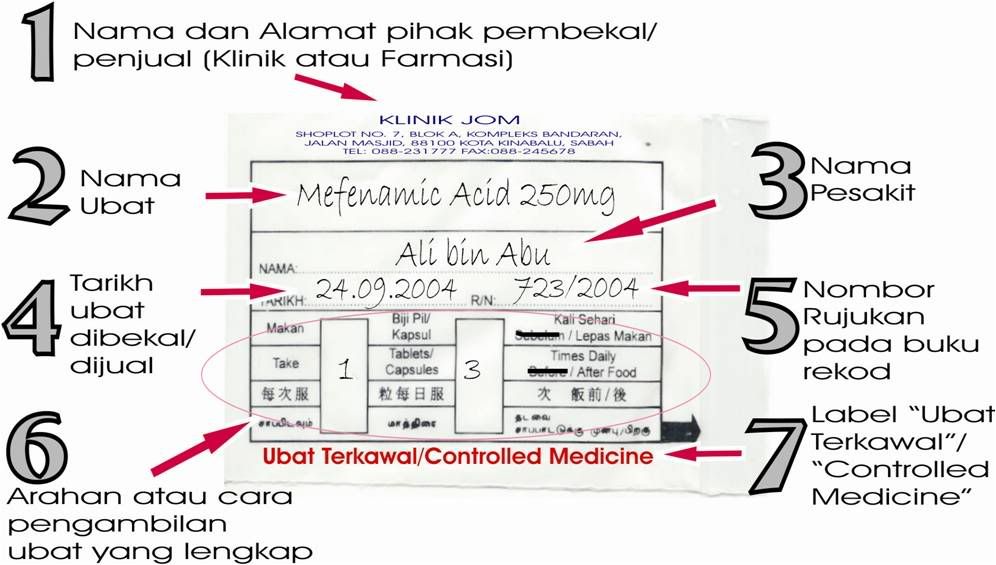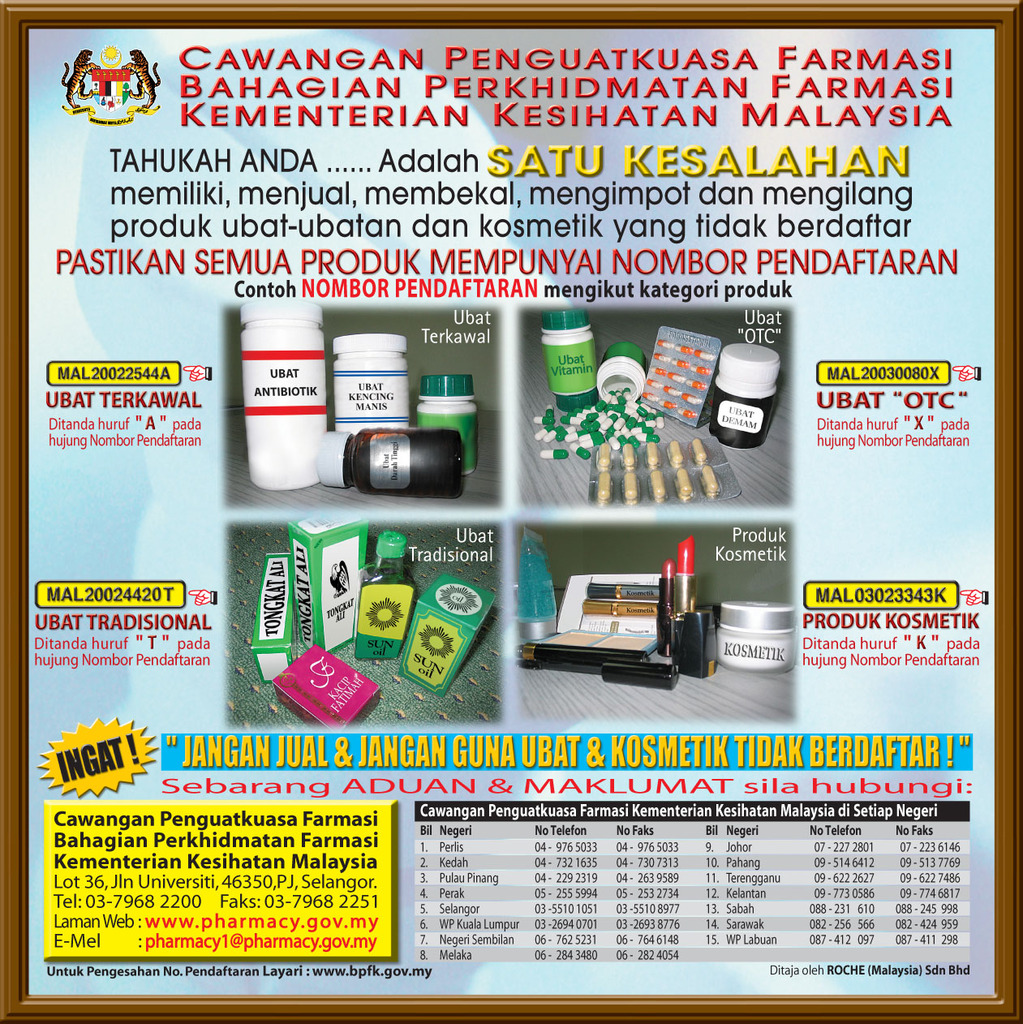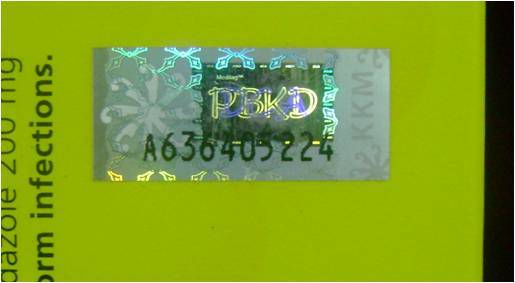The Pharmacy Enforcement Branch is a unit under the Sabah State Health Department, a federal department under the Ministry of Health, Malaysia. Authorized officers who work in this unit are known as Pharmacy Enforcement Officers. What do enforcement officers do? Other than inspecting and raiding shops, there are also other activities that they do. This article will explain the entire picture as a whole.
The Pharmacy Enforcement branch has an important role to protect the health and well-being of the public from the harm of unregistered product. This is done by enforcing the Control of Drugs and Cosmetics Regulations 1984 to control the importation, manufacture, supply, storage, sale, possession and usage of pharmaceutical products. In other words, pharmacy enforcement activities ensure health products used in this country are of good quality, safe and effective.
The Pharmacy Enforcement also processes various licenses and permits applications under the Poisons Act 1952 and its Regulations :
Poisons License Type A - for pharmacist to deal with all poisons
Poisons License Type B - for non-pharmacists to import and do wholesale of industrial chemicals which are controlled as poisons. Sodium Hydroxide Permit - for companies to buy and use Sodium Hydroxide
Apart from issuing poison licenses, the branch also carry out routine checks on clinics, pharmacies and licensed wholesalers of poisons. The main aim is to ensure all poisons are handled, transacted and labeled properly for the safetyof members of the public. During inspection, poisons are checked to ensure they are stored properly - in a room under lock and key. Checking of records on all transactions involving s poisons is to ensure all transaction is legal. Poisons here includes medicines that can cause harm to the public if misused. For instance, medicines that contain poisons can only be supplied by doctors and pharmacists. Other establishment i.e. non-licensed premises and roadside sellers are also inspected to ensure they do not sell medicines containing poisons. Further information can be obtained from the website http://http://www.pharmacy.gov.my/.
Dduring routine checks unregistered products will be confiscated if they are found.. These are products that do not have a specific assigned ‘MAL number’ and hologram sticker. Unregistered products here are medicines including traditional medicines that are not registered with the Drug Control Authority. These products have not been evaluated for their safety, quality and efficacy. Information on registration of products is available at http://www.bpfk.gov.my
Another important enforcement activity by the branch is the control of advertisements of medicinal products and advertisement relating to health or medical services in the mass media and other forms of advertisement eg banners and pamphlets. Advertisements which are approved by the Medicines Advertisement Board are given “KKLIU” approval number and can be published
Activities carried out at the entry points involve screening of import document, checks on parcel post and checks on passengers to prevent entry of unregistered health products and importation of chemical without authorization at the sea port, airport terminals and post-office. Unregistered products or consignements which do not have proper authorizations will be confiscated.
Over the years the Pharmacy Enforcement branch has intensified its activity to contain the problem of unregistered producst. Looking at the figures for the year 2006, the raids themselves contributed to RM476,673.00 worth of poisons and unregistered products seized from traditional medicine stores, unlicensed wholesalers, beauty saloons and pharmacies while seizures of products at entry points amounted up to RM850,000.00.
With the advent of globalization and the limited resources that are available, the Pharmacy Enforcement branch will continue to evolve to meet challenges ahead. Recognising the influence the public have on purchasing trends of pharmaceutical products, healthcare products and cosmetic in the country, the focus of Pharmacy Enforcement will be unto public enlightenment. It is important that the public takes responsibility to ensure the medicines they buy are safe. They must be able to differentiate between ethical and unethical advertisements. We can only achieve these health goals if everyone is in it together. Pharmacy Enforcement branch is here to protect the public from the harm of unregistered products. If the public require any information on the handling or sale of chemicals or health products you can visit us on the 9th Floor, Block D of the KWSP Building, off Karamunsing Road, Kota Kinabalu or call the number 088-231609 / 231610 or by mail to P.O. Box 10607, 88806 Kota Kinabalu or e-mail to cpf@sbh.moh.gov.my. In the near future we will be moving to the 6th Floor of the Federal House, Jalan Mat Salleh, Kota Kinabalu.
© Sabah State Pharmacy Enforcement Branch



